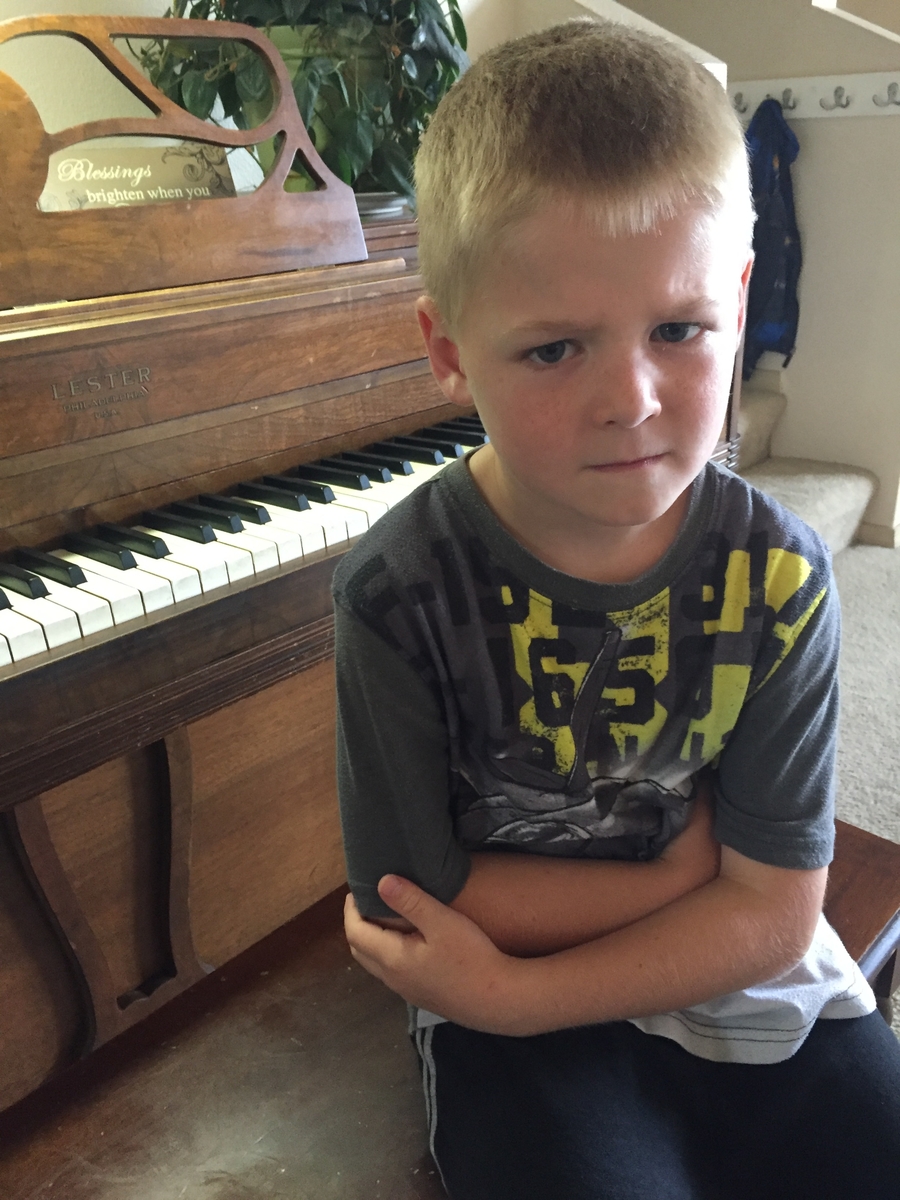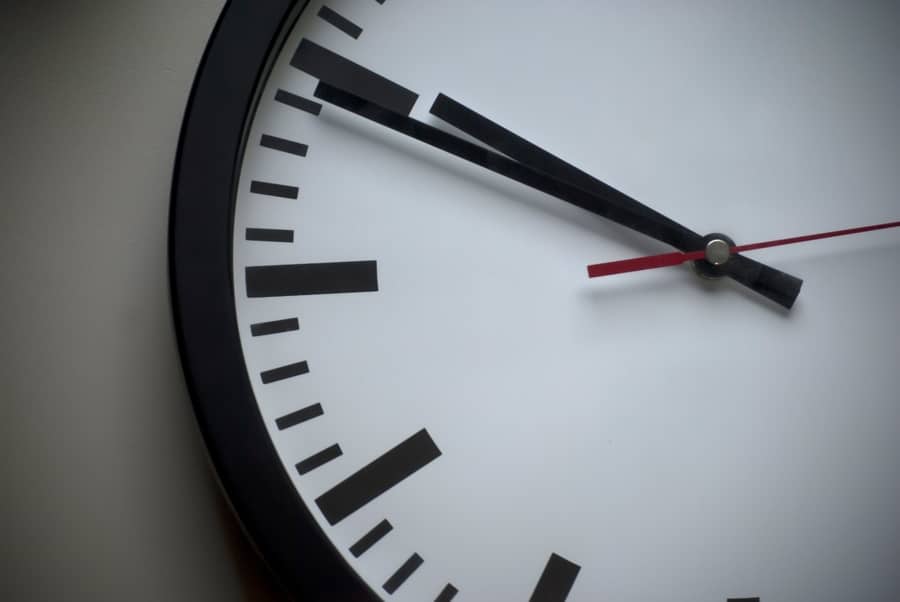Every piano student has to decide when to quit taking piano lessons. It isn’t likely you will be taking piano lessons for forever!
When should you quit piano? Deciding to quit piano lessons depends on how much you like it, how much time and money you have for it, and how good you are. Carefully evaluate where you are in each of these areas before you make a decision that will be hard to reverse. It is much less likely for you to take piano lessons ever again once you decide to stop.
Since this is a question every piano student will inevitably have to ask themselves and since 99% of us will quit taking formal piano lessons sometime, you need to think about this carefully so you don’t quit too early and regret the decision the rest of your life.
How much do you like it?

This is the #1 factor of why most piano students quit piano. Many piano students start with so much excitement and motivation. When that wears off, we start to wonder, “Do I really want to do this?”
Or you may have a student who balks every time you mention the word practice. Wouldn’t they much rather go play then spend their time practicing?
If you, or someone you know, is contemplating quitting the piano, you better believe that how much you like it is a major factor in that decision.
Decide just how much you like playing the piano. Think about it in three ways: from how much you liked it in the past, how much you like it now, and how much you think you will like it in the future.
How much have you liked it in the past? Think back to when you first started. What was it like? Was it exciting when the black dots and lines on the paper started to make sense? Did you feel a thrill when you played your first song, and then when you played a song that was awesome? What was it like telling your friends and family that you play piano?
How much do you like it now? How much satisfaction do you get when you sit down and master a piece of music? How much do you value the ability to look at music and understand what is going on? How much do you enjoy the ability to play the piano? In what ways has your skills at piano affected your life?
How much will you like it in the future? What do you imagine when you think of playing the piano in five years? What do you think it would be like to play whatever music you wanted? What would it be like to be able to accompany others, or to sit down at any piano and have a spontaneous dance party, or to play in a grand hall, or to be a YouTube sensation? How much do you think you will like piano in 10 years? 20 years? 50 years?
As you answer these questions, decide how it makes you feel. Does it make you stand firm in your dislike, that you never liked it and that you never will? Or does it make you remember just how much satisfaction it can bring sometimes and how much you would enjoy your ability to play well in the future?
Take a close look at your answers. This is definitely a large deciding factor.
How do I stay motivated?
How do we keep the “play” in piano? It is called “play”-ing piano for a reason!
Answering the questions above and taking a close look at your goals for your future can be very motivating. Sometimes we need to get a glimpse of what future piano playing looks like. Attend a concert or turn on some amazing piano playing YouTube videos.
Maybe you need some new music to work on. Something your really want to be able to sit down and play.
Schedule a performance. Playing for others, or for a recording, is definitely motivating and give you a deadline for mastering that music!
How much time and money do you have for it?

Two major deciding factors of if you should quit piano are the amount of time and money you have at your disposal. This is the #2 biggest factor for deciding if you should quit piano.
Piano takes time. It takes time to attend your lessons. It takes time to practice. A lot of time. And time, no matter who you are, is a commodity that nobody can get more of. You must decide if the time it takes to play piano is valuable to you. You certainly have many other demands on your time. What is your priority?
If time is something you don’t have a lot of, then maybe you need to adjust the time you can spend on piano. Just 5-10 minutes a day can and does make a difference! You can continue to gain skills in piano if you carefully practice, even for just a few minutes a day!
Naturally, the more time you put into piano, the more piano can do for you. But sometimes, more isn’t always better. Make sure you are playing smart as well and choosing wisely how you use your time at the piano.
Piano lessons take money. I am sure you are well aware of this! If money is a factor, then decide how satisfied you are spending your money on lessons now. Are your lessons what you expect them to be? Do you feel that the money you spend on your lessons is well spent? If not, there are other ways to continue to take lessons that may not be as expensive. On the other hand, it may be worth investing a little more to get the teacher resources that would work better for you.
How do I find more time and money?
One of the BEST, fail-proof ways to get more time to practice piano is to set a time every day that works well for your schedule and stick to it!
Make the decision once and don’t make it again. What I mean by that is, decide when and how long you are practicing and then do it. Don’t decide every time you need to sit down whether or not you should or will. Just do it without even thinking!
If money is an issue, take a look at all of your options. Do you realize how many free online resources there are to learning piano? Buy into a program if you need to. Or find a teacher that charges less. Many teachers are willing to swap services. I have several students that I have swapped with over the years. We have swapped for babysitting, house cleaning, meals, essential oils, bread, and eggs. Get creative! I am sure there is a way to figure it out.
How good are you?

This should be the next big factor in your decision of if you should quit piano lessons. Your skill level is definitely something to evaluate before you decide to quit.
Take a look at your goals for piano. Where do you want to be in your skill levels one day? Once you know that, then figure out how you are going to get there. If you are currently on a course that allows you to get there, stay steady on that course. If not, then get on that course! You aren’t going to get there unless you do.
If you want a little more specifics, then I will give you my opinion. Take it for what it’s worth (FREE, right? haha). Personally, I feel that you aren’t ready to go solo and quit taking piano lessons until you are able to play about anything that you want to or that you will want to play one day. When you can pick up a piece of music and you can eventually play it, even if it may take you a while to get there, then you made it! You can pretty much teach yourself from then on and I give you permission to take the reigns and quit taking piano lessons!
If you can’t play anything that you want to, or that you will want to be able to play one day, then it probably isn’t the right time for you to quit taking piano lessons just yet. You need a little more coaching before you can fly solo.
Unless of course you want to become a concert pianist. At which point you better buckle in for the long haul cause there isn’t any quitting until you get there.
Tips for piano students to get better faster.
Change the way you practice. Practice is your BEST tool for getting better faster. Practice smart, not just hard. Read up on my article here called 7 Things You Can Do Today That Will Change Your Piano Practice Forever.
Playing the piano is a brain exercise. Piano is one of the few activities in the world that uses multiple areas in the brain, at the same time. Thus, practice piano when you are refreshed, when you are ready to think and not just play, and when you can proactively identify, figure out, and fix problems. Fifteen minutes of brain-packed piano practice will go much farther than thirty minutes of mindless exercises. Yes, there is some muscles memory to develop, but develop that muscle memory intentionally not just passively.
Before you quit, think about this.
If you are considering quitting piano lessons, there is obviously a reason for that. You are unsatisfied with your piano lessons. Why? What is it that’s causing you to want to quit?
Before you quit, think about yourself in 5-10 years. Think about what your life would be like had you not quit piano. Then think about what your life would be like if you had. After you evaluate this, then ask a trusted friend or parent what they think your life would be like with or without piano lessons? It is wise to get some mentorship on this before you make that decision.
Once you decide to quit, there really is very little chance of taking piano lessons again. As much as you may intend to do so, it likely won’t happen. So, before you quit, do you really want to?
You should make a goal to quit piano lessons.
Although you may not have expected me to say this, I would hope that it is the goal of every student to eventually be able to quit taking piano lessons. Basically being able to quit piano lessons means that you have made it! You can do it on your own.
We don’t want to be taking piano lessons your whole life. At one point, you can take this on your own! So make it a goal to be able to do it.
Flying solo – playing piano without a piano teacher

This probably isn’t news to anyone, but learning piano is a life-long practice. Just because you quit taking lessons doesn’t mean that you quit learning about it. I haven’t taken formal lessons in over 17 years but I have learned much more about the piano after I quit taking lessons than during my lessons.
You can continue to learn and master the skills of music! Try some of these ideas:
- Take free online Coursera courses. They have several options for music education from theory, to studies on different musical eras, to music production. The courses change every once in a while so keep checking back if you aren’t finding what you are looking for.
- Perform. Drop in and play at a local retirement home. Join a band, or play for a choir. Offer to accompany anyone that wants to perform at church. Go to a local high school and offer to accompany the students for solo ensemble. You can even charge a fee for that.
- Pick up new pieces of music. Always be working on several new pieces that challenge you.
- Watch YouTube videos. Both professional ones and ones teaching you things.
- If possible, have a music mentor. A mentor is different from a piano teacher. A mentor offers support to answer questions or give moral support. They are there if you need them. Get a mentor.
- Network with other piano players. Do so online, or locally. The music store will likely give you places to start if you need it. Just start asking around your area and build relationships with the people who have interest and skills in music. You will learn a lot from others!
Never quit learning more when it comes to playing piano and understanding music. And enjoy the journey!
Tel loves her life as a piano player, a piano teacher, and a mom. Amid piano blogging, piano teaching, and piano playing, she loves a chance to fit in a good exercise class, volunteer at her kids’ school and at her church, and go on long dates with her husband. Full bio at About Tel.


